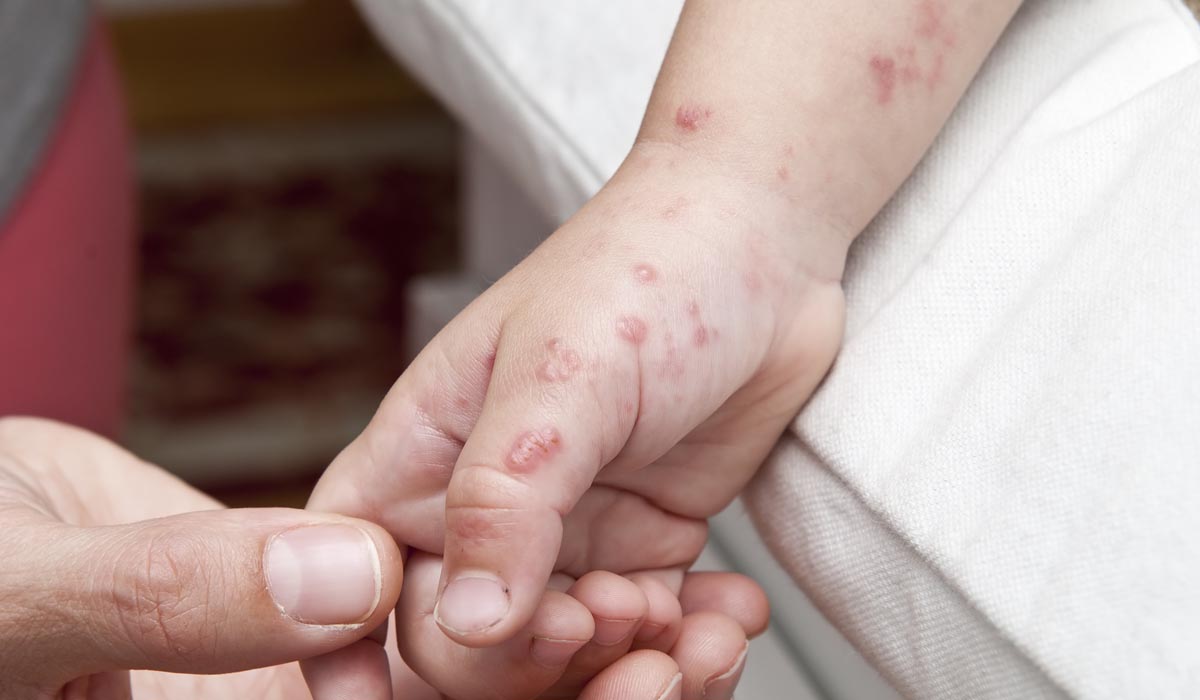✨Book online and enjoy a 5% discount on your first consultation
Home » Skincare Services » Herpes Zoster


Herpes Zoster
Having rashes and blisters cover up your skin is one of the most agonizing pains a person can experience. Herpes affects both physically and psychologically. It spirals you down, making you cranky and moody due to the constant discomfort.
Among the various types of rashes and blisters you can get affected by, herpes zoster is a type that you should be extremely cautious about. Popularly known as shingles, it is a type of viral infection that leads to outbreaks of extremely painful blisters and rashes on your body. Herpes is caused by the same virus that causes chickenpox – varicella-zoster. The rashes appear as a band of blisters or rashes on a particular area of your body. The rashes are reddish-pink in color in their early stages but turn brown in later stages.
Possible Causes
Herpes zoster is caused by varicella-zoster, the same virus that causes chickenpox. Usually, people contract chickenpox in their childhood, and humans fight off this virus. Although the physical signs of chickenpox slowly fade away, this virus always remains in your system.
For some individuals, this dormant virus can get active in their adulthood, marking shingles to appear in your body.
Weak immune systems and people the age of 50 are more likely to contract this disease. The same applies to people under stress or who have experienced trauma.
Risk Factors
Anyone who comes in contact with varicella-zoster virus (VZV) or had varicella vaccination can develop herpes zoster. The decline in immunity due to increasing age can or consuming medications that suppress a person’s immune system can also put you at risk of getting infected. Some other risks associated with herpes zoster are:
Signs and Symptoms
It is of utmost importance to nip this disease in its bud. So, you need to make sure that you visit a doctor as soon as you see that you are having a combination of the following symptoms:
After a couple of days of these aforementioned signs, you might notice the following symptoms:
Diagnosis
Signs and symptoms of herpes zoster are enough to make an accurate diagnosis. Herpes zoster can be confused with herpes simplex. That is why doctors may go for further investigations. Some laboratory tests for herpes zoster are:
Treatment Options at 7DMC
Getting early consultation can fasten the recovery period for you. Reputed medical centers like 7DMC have a specialized skin care clinic that is home to world-renowned dermatologists. Seeking their advice and getting medicated in accordance with them will not only help you but also the people around you.
Herpes zoster may not be contagious, but the virus that causes it – varicella-zoster – can spread when you come in direct skin-to-skin contact with the fluid that oozes out from the blisters. As such, you can contract chickenpox through it (since it is caused by the same virus), especially if you haven’t contracted chickenpox before.
It takes anywhere between 3-5 weeks from the moment you start seeing the first symptoms till they are completely gone. Although there is no actual cure for herpes zoster, treatment can be done in order to manage the symptoms. Anti-viral medications help in easing the pain, especially if they are taken within the first 72 hours of the first appearance of the symptoms. So, be extremely cautious and make an appointment with doctors and quickly start your recovery.
Early symptoms and signs of herpes include burning/tingling sensation, itching, and skin sensitivity for 3 days. After the blisters appear, some may be red or yellow in color.
Yes, herpes zoster has single-dose vaccines. The most commonly used vaccine is Zostavax (live virus vaccine) and Shingrix.
Yes, it is possible to have a repeated outbreak. However, most people get it only once. People with a compromised immune system are more likely to get it.
Near Dubai Miracle Garden,
Diamond Business centre A,
1st Floor,
Arjan, AI Barsha,
Dubai.
Career@7DMC | Privacy Policy | Patient Data
WhatsApp us